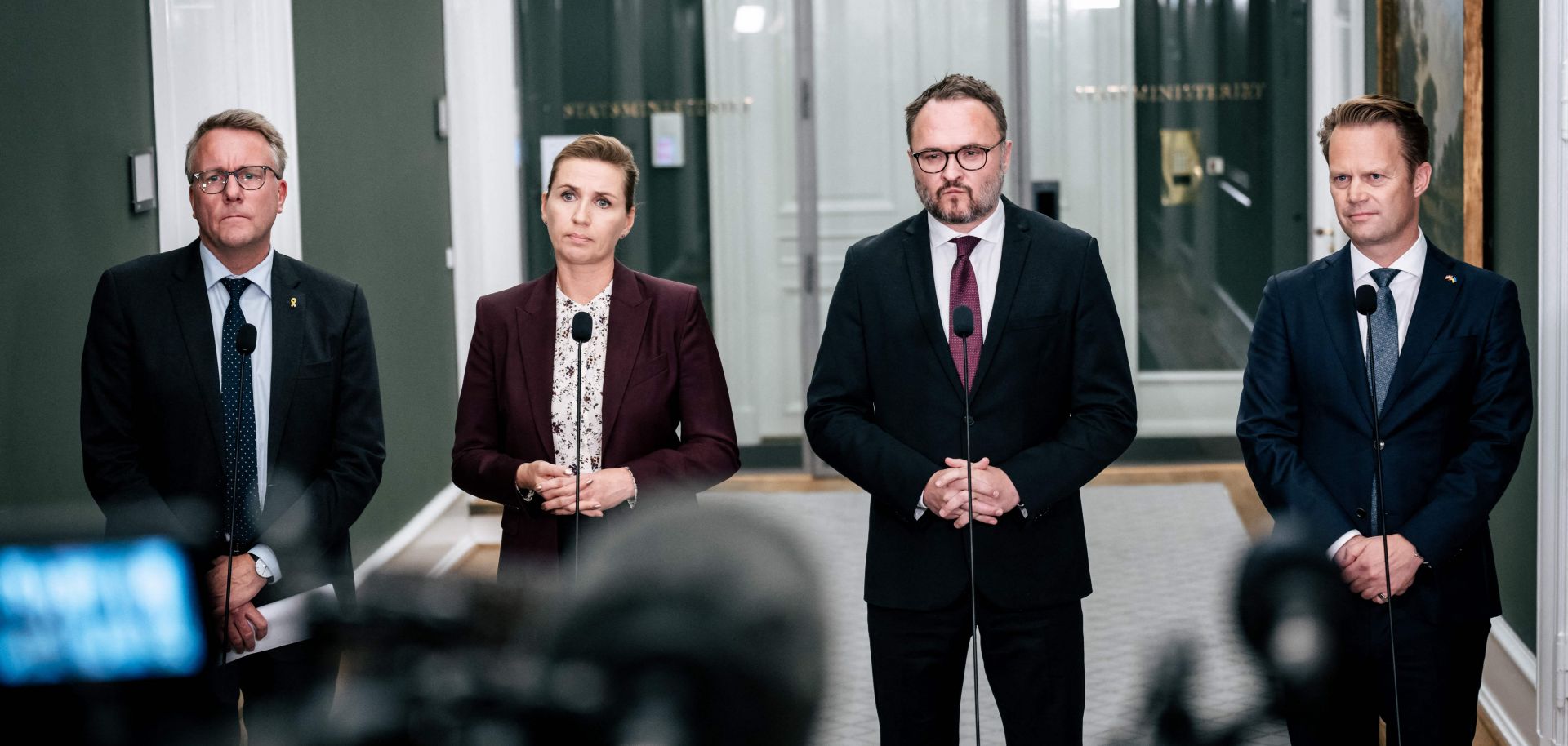Between Sept. 27 and Sept. 28, a total of four leaks were detected on the Nord Stream 1 and Nord Stream 2 natural gas pipelines connecting Russia to Germany via the Baltic Sea in the proximity of the Danish island of Bornholm. Both branches of the two pipelines, which run almost parallel to one another on the seabed through the Baltic Sea in international waters, underwent a sharp drop in pressure on Sept. 26 before the leaks were detected. Authorities in Denmark and Sweden are investigating the incidents, and several European governments are referring to the actions as sabotage, with Finland noting that only a state actor would be able to cause the leaks. While uncertainty remains over the exact causes and eventual culprit behind the leaks, all signs seem to point to Russia in yet another escalation of its energy war against Europe, despite denials by Moscow. Kremlin spokesperson Dmitry Peskov called accusations that Russia was behind any sabotage "stupid and absurd."
The leaks — which coincided with the inauguration of a pipeline that will deliver Norwegian gas through Denmark to Poland for the first time — come as Russian natural gas supplies to Europe have dwindled as part of Russian President Vladimir Putin's efforts to increase the political and economic costs of supporting Ukraine. While the Nord Stream leaks will not lessen natural gas supplies to Europe, as operations at both pipelines were already halted, they have made any resumption of natural gas supplies through the pipelines this winter impossible. Additionally, indications of sabotage are driving fears that the remaining flows of Russian natural gas through Ukraine will be disrupted and/or that similar incidents will affect other pipelines, and this uncertainty is making energy markets more nervous, which is driving Europe's natural gas prices higher. In response to the suspected sabotage, Norway — now Europe's largest natural gas supplier — announced on Sept. 28 that it will deploy its military to increase security around its oil and gas infrastructure. While there is currently no specific threat identified against Norway's offshore oil and gas sector, Europe would face a significant energy crisis if new developments force Norway to cut, halt or reduce its energy and gas deliveries by any substantial amount.




